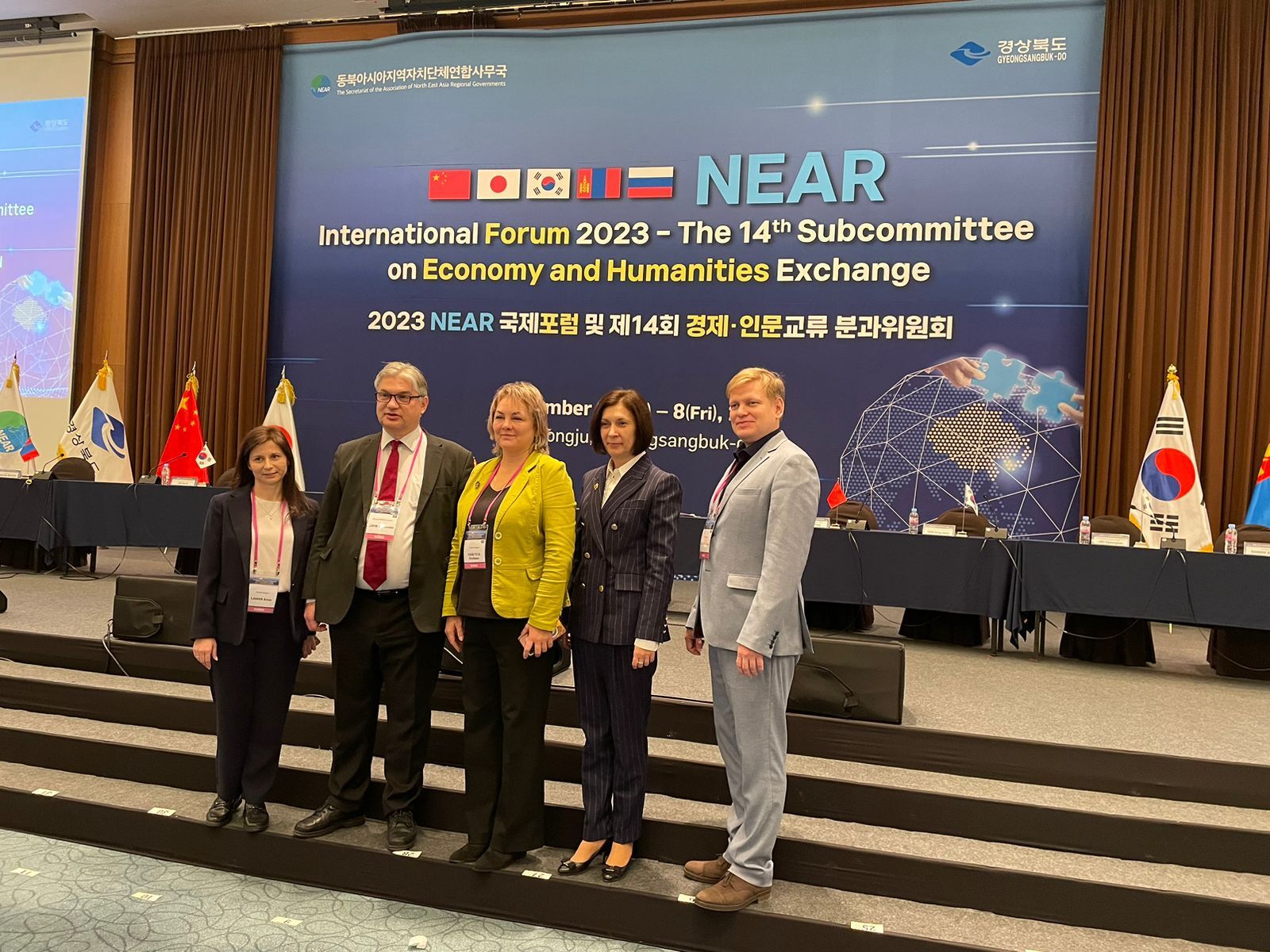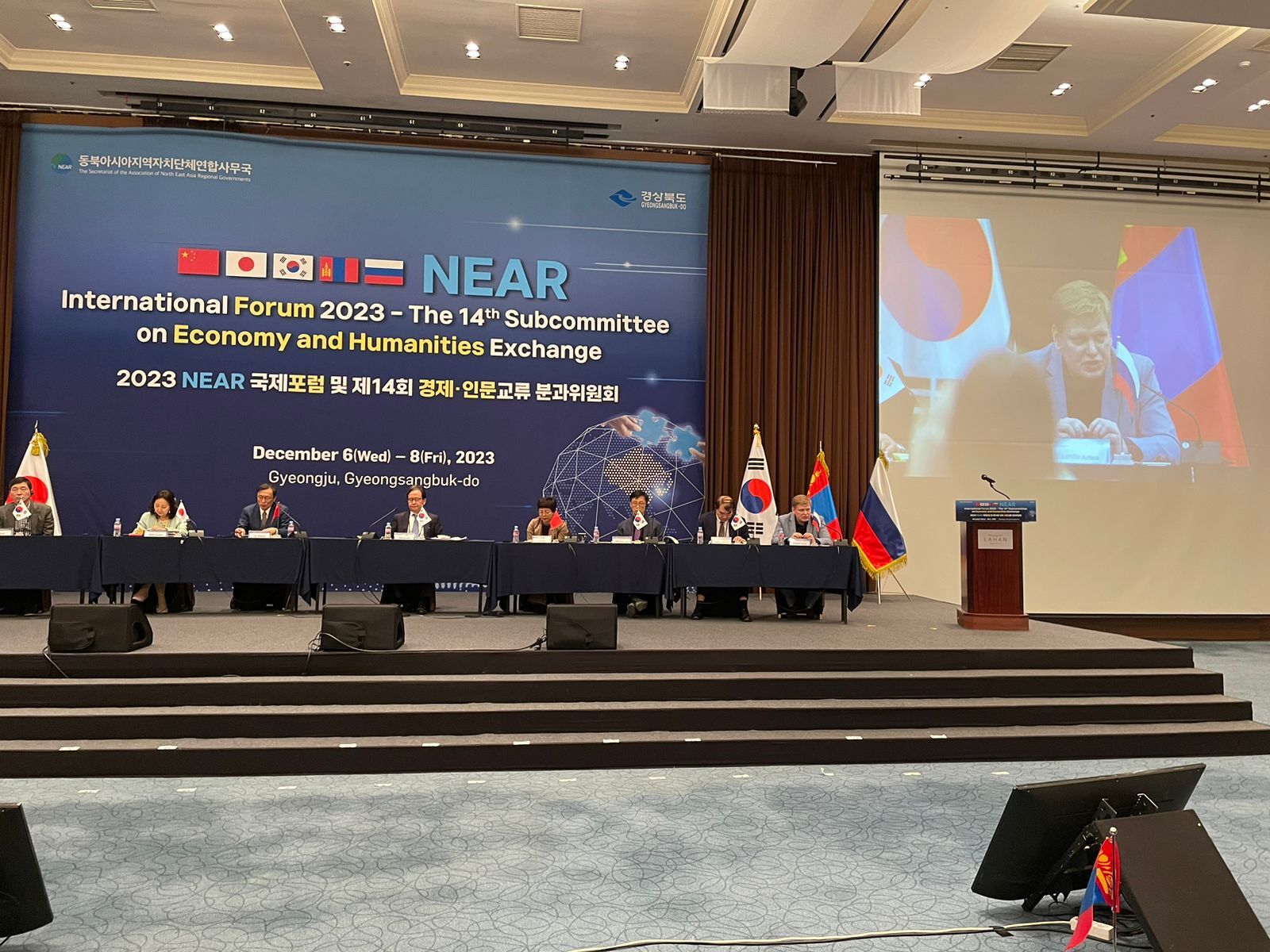As part of the Tomsk Region delegation, Artem Dankov, director of the TSU Confucius Institute, participated in the NEAR International Forum, “In the Era of Transformation, Local Government Cooperation in Northeast Asia”. He presented the experience of the Institute in cultural exchange at the expert session New Ways to Develop Inter-regional and International Cooperation.
The Forum was organized in South Korea by the Association of North East Asia Regional Governments (NEAR), established in 1996 and comprising 81 regions from six countries: China, Russia, Japan, Republic of Korea, Democratic People's Republic of Korea, and Mongolia. The Tomsk Region is actively involved in NEAR, developing international relations with the regions.
Russia was represented by Russian Consul-General in Busan Oksana Dudnik, Vice-Consul Timur Klardzheishvili, Russian Trade Mission in South Korea, Russian regional governments and universities.

“The key topics were developing research and education, fostering innovation, and organizing international cultural exchange,” says director of the TSU Confucius Institute Artem Dankov. “Geopolitical turbulence pushes regions to seek new areas of collaboration, and experts identify four key directions: cultural diplomacy, exchange of knowledge, economic development, and solution of environmental issues.

Photo courtesy of Artem Dankov
“TSU can contribute to tackling environmental challenges because we create and actively develop our own environmental technology,” says Dankov. “At the same time, the university is not only about research and learning, it’s also a cultural center, well-known in Russia and beyond. It can be part of cultural exchange that includes tours of theaters, music, and performance groups. Youth exchanges, exhibitions, and workshops will be at the heart of long-term collaboration between the regions.”
The opportunities to promote such interaction were demonstrated by TSU Confucius Institute, which celebrated its 15th anniversary in 2023. The global network of Confucius Institutes comprises hundreds of organizations worldwide. They have proven effective multiple times by top officials. In 2016, the TSU Confucius Institute was declared the best in the world. It was the only Russian center in top twenty.
Now the Institute’s staff are willing to share the experience of bettering cultural exchange and education, thus promoting TSU on the global cultural and academic landscape